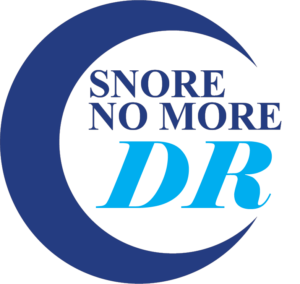Snoring. Nothing to Yawn At
Much more than an annoyance, snoring and sleep apnea can pose many serious, even life threatening health consequences.
Does your significant other keep you up at night with snores loud enough to compete with a jackhammer? If so, you’re far from alone in your sleep woes. About 40-60 percent of adults snore, and spouses of a snorer suffer “second hand snoring” and sleep, on average, 62 minutes less per night, according to a Mayo Clinic report.
Much more that an annoyance, snoring and the more serious sleep apnea, a disorder characterized by frequent pauses or interruptions with breathing during sleep, can have many minor and major health implications.
Causes and Effects
Typically, air passes through the nose and past the flexible structures in the back of the throat such as the soft palate, uvula, and tongue. During sleep, the muscles relax, but normally the airway stays open. However, when an airway partially constricts or collapses, the air passing through it causes the pharyngeal soft tissues to vibrate, resulting in snoring sounds.
Although, not everyone who snores has sleep apnea, snoring is a common symptom of sleep apnea. Approximately 70% of people who snore loudly have sleep apnea. Patients with sleep apnea often mak choking or gaspins sounds and are constantly shifting sleep positions in their body’s restless attempts to breathe.
Snoring and obstructive sleep apnea (OSA) have similar causes. OSA occurs when the tissue in the upper airway collapses, blocking the airway and causing the airflow to stop. These breathing pauses or collapses, which can happen hundreds of times a night, can be as brief as 10 to 30 seconds or last as long as a minute or more. When collapses occur, oxygen is kept from reaching organs, including your brain and heart. The brain forces you awake to breathe; this can happen so quickly you may not realize it. The resulting fragmented sleep can lead to daytime sleepiness, and, in several cases, this “suffocation” can occur 60 to 90 seconds, up to 500 times a night.
You can live three weeks without food, three days without water, but only three minutes without oxygen. Oxygen saturation is a major component of obstructive sleep apnea. Repeated breathing stoppages inhibit the body’s natural ability to process and maintain.
Dormant Dangers
In addition to snoring and excessive daytime sleepiness, sleep apnea can cause memory loss, morning headaches, irritability, depression, sexual dysfunction, hormone irregularity, type 2 diabetes, impaired concentration, and acid reflux, just to name a few. Obstructive sleep apnea has been linked to cancer, and weight gain. Sleep apnea patients have a much higher risk of stroke (90% of stroke victims have obstructive sleep apnea) and heart problems, such as heart attack, congestive heart failure, and hypertension. Sleep apnea patients are also more likely to be involved in accidents at the work place or while driving. Sleep apnea sufferers are twice as likely to die in their sleep; if left untreated, severe sleep apnea patients have a life expectancy of 55.
Further complicating the problem, most primary care practices are not actively screening patients for obstructive sleep apnea., which leaves a huge void in the number of patients being identified with this killer disease.



